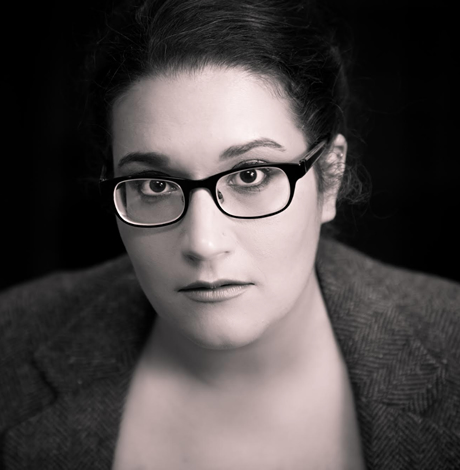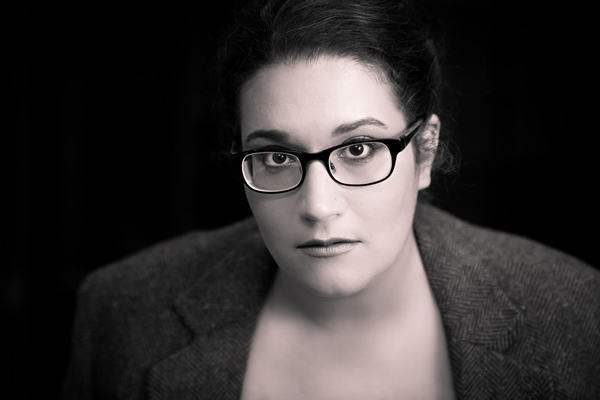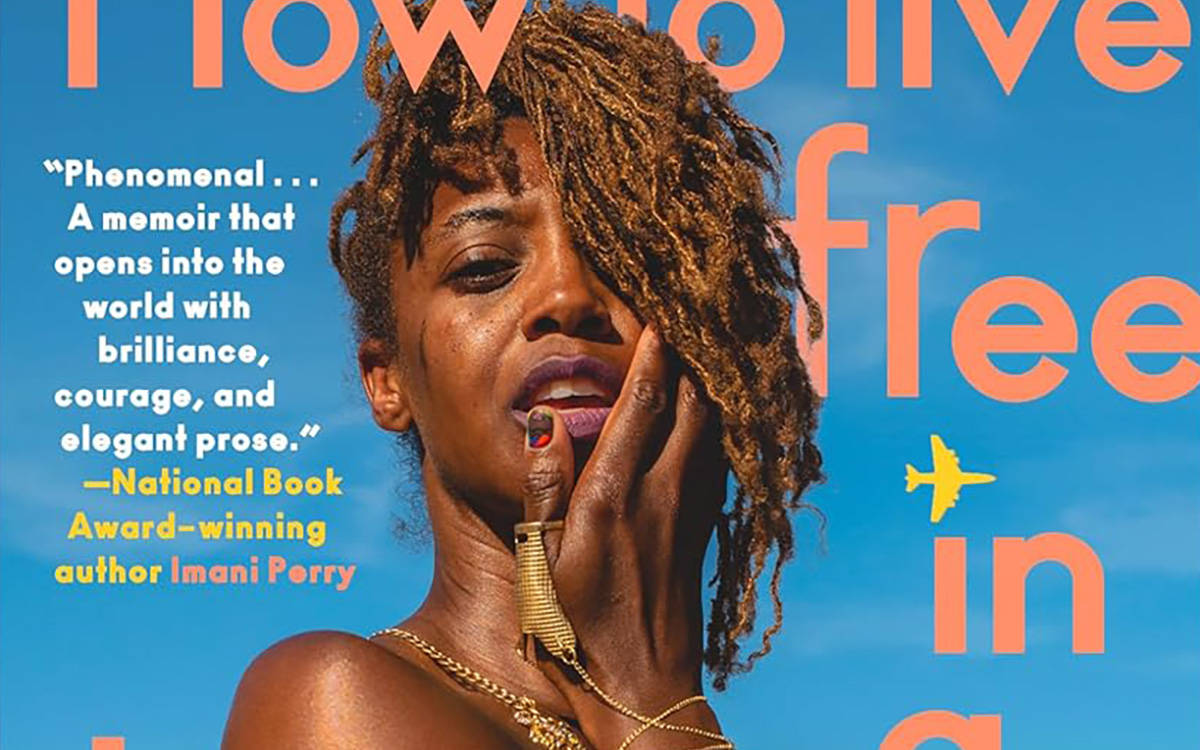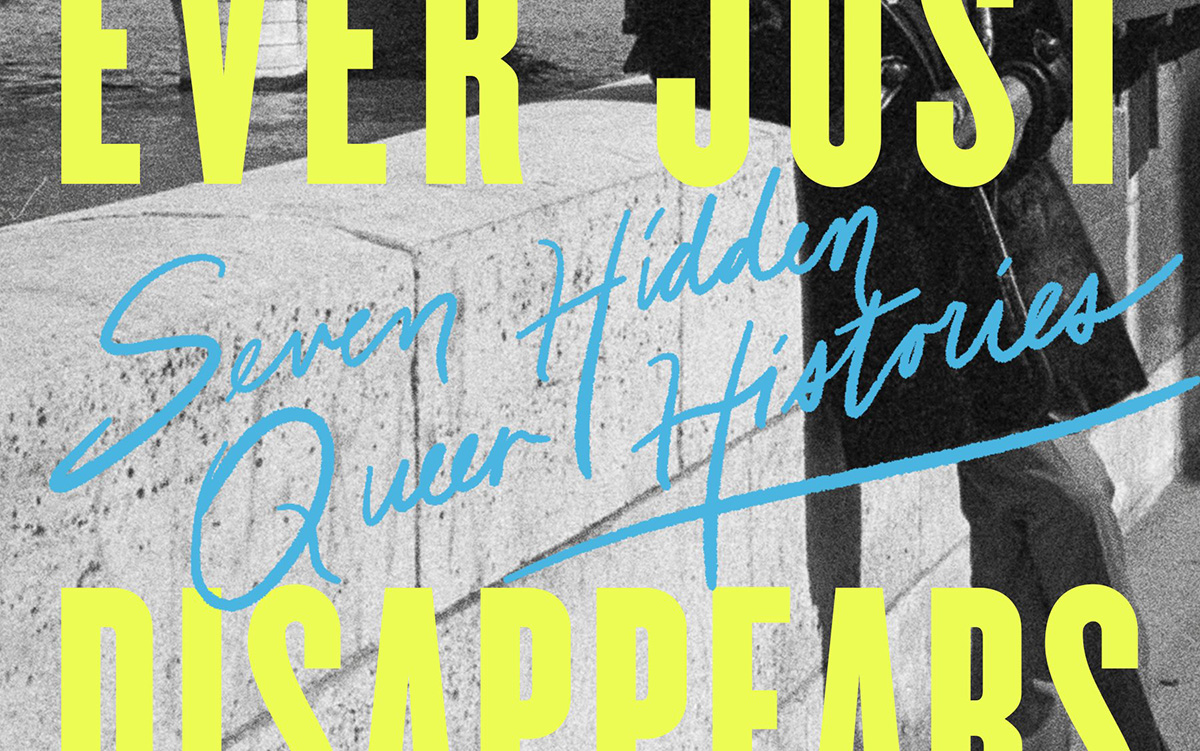Books
Queer author Carmen Maria Machado draws raves for ‘Her Body’ short story collection
Writer says family storytelling tradition, collegiate experiences inform her fiction


Author Carmen Maria Machado says her love of reading and the storytelling tradition of her family deeply inform her work. (Photo courtesy Tom Storm Photography)
All fiction writers need imagination. Carmen Maria Machado’s is so vivid, she sometimes passes it on to her characters.
“Sometimes I sat on the porch and gave imaginary interviews to NPR personalities,” says the narrator of “The Resident,” a short story in Machado’s debut collection “Her Body and Other Parties.” “”When I write, I feel like I’m being hypnotized,’ I told Terry Gross. ‘It was at that moment I knew everything was going to change,’ I told Ira Glass.’”
For most writers, such daydreams remain mere fantasies. Few authors become literary superstars or suddenly find themselves under the spotlight on NPR. Yet this is what happened to Machado, a 31-year-old queer writer.
Her short story collection “Her Body and Other Parties” (Graywolf Press), released in October, has received the attention usually bestowed on the work of literary giants such as Toni Morrison or Michael Cunningham. “Parties” was a finalist for the National Book Award, the Kirkus Prize and the National Book Critics Circle’s John Leonard Prize. It won the Bard Fiction Prize. It’s her first full-length work though she has had many of her stories published in various outlets.
“Parties” is unlike any previous short story collection. Women’s bodies, queerness and feminism pulsate through the tales in “Parties” from “Inventory” to “Difficult at Parties.” Yet the book isn’t didactic or the least bit doctrinaire. Like the horror movie “Get Out,” the stories pop with horror and comedy.
Women have joyous sex, even as people die worldwide from a virus spread by physical contact. A sexual assault survivor hears the inner thoughts of characters in porn. A novella “Especially Heinous: 272 Views of Law & Order: SVU,” is a piercing, but hilarious send up of “Law & Order: SVU” and its fascination with sexually traumatized women.
“The collection is that hallowed thing: an example of almost preposterous talent,” the Los Angeles Times said of “Her Body and Other Parties,” “that also encapsulates something vital but previously diffuse about the moment.”
Storytelling, Machado says during a Blade phone interview, is part of her family tradition. Her paternal grandfather came to the U.S. from Cuba; his wife was from Austria. They met as immigrants in New York. Her mother’s family is white.
“Storytelling, especially on the Cuban side of the family, is important,” Machado, an Allentown, Pa., native who now lives with her wife Val in Philadelphia, says. “My grandfather has dementia, but we can still recite stories back to him and he remembers.”
She incorporates that oral storytelling tradition in her work. Her love of reading and writing, as one might imagine, has deep roots.
As a child, Machado read voraciously. She went to the library and devoured books like candy, reading at breakneck speed, she says.
“All kids write stories. I wrote them and typed them out. I always loved the idea of being a writer.”
Machado sent her stories to publishers and authors. Her letters yielded no publishing offers, but, “my wife who works in publishing says that some delighted interns at the publishing houses must have loved my letters.”
To her surprise and delight, Machado heard back from Livia Bitton-Jackson, a Holocaust survivor and author of the memoir “I Have Lived a Thousand Years: Growing Up in the Holocaust.”
“In the book, Bitton-Jackson talked about how the poems she wrote were left behind when she was taken by the Nazis,” she says. “I wrote to her and asked what happened to her poems. One day, my mom, who was confused by it, said, ‘There’s a letter for you from Israel.’”
Bitton-Jackson told Machado that she didn’t get her poems back, but that she’d kept on writing.
“She asked me about myself,” she says. “It felt magical that a real person — a writer — wrote back to me.”
When she was young in the 1990s, Machado didn’t understand that she was queer.
“I had crushes on girls, but I didn’t think of it in that way. I didn’t have any framework,” she says. “I didn’t know anyone who was out and queer until I went to college.”
Machado graduated from American University in 2008 with a degree in visual media. During her years in Washington, she read the Blade as she was coming out.
“I thought, ‘Oh this is who I am,’” she says. “My parents were pretty chill, though they were a bit confused because I was lesbian/bi. They didn’t quite understand why I would date a guy, but they were great about it.”
Attitudes about being queer were different for some of Machado’s extended family.
“Some of them were very religious,” she says, “but I didn’t have to deal with a lot of that kind of nonsense. I feel extremely lucky.”
Machado went to college to study journalism, but quickly realized that wasn’t what she wanted to do, so she switched to literature and photography.
“I wanted to get loose with my sentences,” Machado says. “I didn’t have the blood thirst, the nose for news, to be a reporter.”
After graduating, Machado moved to Berkeley, Calif., working random jobs during the recession and enduring a bad break-up, which she says made her miserable. But she didn’t stop writing. A creative writing teacher, whom she calls “a lovely human being,” encouraged her to keep writing stories.
Her stint at the Iowa Writers’ Workshop from 2010-2012, where she earned a master’s degree, changed everything professionally for her.
“Suddenly, I was getting paid to be in grad school and write,” she says. “I didn’t have to worry about finding jobs. I had good health insurance. I could go to therapy and figure out my aesthetic.”
And, of course, her success with “Her Body” has helped fuel ongoing efforts. “House in Indiana,” a memoir about same-sex domestic violence is due in 2019.
“Same-sex violence isn’t talked about,” Machado says. “I wanted to talk about it.”
Kathi Wolfe, a writer and a poet, is a regular contributor to the Blade.
Books
New book offers observations on race, beauty, love
‘How to Live Free in a Dangerous World’ is a journey of discovery

‘How to Live Free in a Dangerous World: A Decolonial Memoir’
By Shayla Lawson
c.2024, Tiny Reparations Books
$29/320 pages
Do you really need three pairs of shoes?
The answer is probably yes: you can’t dance in hikers, you can’t shop in stilettos, you can’t hike in clogs. So what else do you overpack on this long-awaited trip? Extra shorts, extra tees, you can’t have enough things to wear. And in the new book “How to Live Free in a Dangerous World” by Shayla Lawson, you’ll need to bring your curiosity.

Minneapolis has always been one of their favorite cities, perhaps because Shayla Lawson was at one of Prince’s first concerts. They weren’t born yet; they were there in their mother’s womb and it was the first of many concerts.
In all their travels, Lawson has noticed that “being a Black American” has its benefits. People in other countries seem to hold Black Americans in higher esteem than do people in America. Still, there’s racism – for instance, their husband’s family celebrates Christmas in blackface.
Yes, Lawson was married to a Dutch man they met in Harlem. “Not Haarlem,” Lawson is quick to point out, and after the wedding, they became a housewife, learned the language of their husband, and fell in love with his grandmother. Alas, he cheated on them and the marriage didn’t last. He gave them a dog, which loved them more than the man ever did.
They’ve been to Spain, and saw a tagline in which a dark-skinned Earth Mother was created. Said Lawson, “I find it ironic, to be ordained a deity when it’s been a … journey to be treated like a person.”
They’ve fallen in love with “middle-American drag: it’s the glitteriest because our mothers are the prettiest.” They changed their pronouns after a struggle “to define my identity,” pointing out that in many languages, pronouns are “genderless.” They looked upon Frida Kahlo in Mexico, and thought about their own disability. And they wish you a good trip, wherever you’re going.
“No matter where you are,” says Lawson, “may you always be certain who you are. And when you are, get everything you deserve.”
Crack open the front cover of “How to Live Free in a Dangerous World” and you might wonder what the heck you just got yourself into. The first chapter is artsy, painted with watercolors, and difficult to peg. Stick around, though. It gets better.
Past that opening, author Shayna Lawson takes readers on a not-so-little trip, both world-wide and with observant eyes – although it seems, at times, that the former is secondary to that which Lawson sees. Readers won’t mind that so much; the observations on race, beauty, love, the attitudes of others toward America, and finding one’s best life are really what takes the wheel in this memoir anyhow. Reading this book, therefore, is not so much a vacation as it is a journey of discovery and joy.
Just be willing to keep reading, that’s all you need to know to get the most out of this book. Stick around and “How to Live Free in a Dangerous World” is what to pack.
The Blade may receive commissions from qualifying purchases made via this post.
Books
Story of paralysis and survival features queer characters
‘Unswerving: A Novel’ opens your eyes and makes you think

‘Unswerving: A Novel’
By Barbara Ridley
c.2024, University of Wisconsin Press
$19.95 / 227 pages
It happened in a heartbeat.
A split-second, a half a breath, that’s all it took. It was so quick, so sharp-edged that you can almost draw a line between before and after, between then and now. Will anything ever be the same again? Perhaps, but maybe not. As in the new book “Unswerving” by Barbara Ridley, things change, and so might you.

She could remember lines, hypnotizing yellow ones spaced on a road, and her partner, Les, asleep in the seat beside her. It was all so hazy. Everything Tave Greenwich could recall before she woke up in a hospital bed felt like a dream.
It was as though she’d lost a month of her life.
“Life,” if you even wanted to call it that, which she didn’t. Tave’s hands resembled claws bent at the wrist. Before the accident, she was a talented softball catcher but now she could barely get her arms to raise above her shoulders. She could hear her stomach gurgle, but she couldn’t feel it. Paralyzed from the chest down, Tave had to have help with even the most basic care.
She was told that she could learn some skills again, if she worked hard. She was told that she’d leave rehab some day soon. What nobody told her was how Les, Leslie, her partner, girlfriend, love, was doing after the accident.
Physical therapist Beth Farringdon was reminded time and again not to get over-involved with her patients, but she saw something in Tave that she couldn’t ignore. Beth was on the board of directors of a group that sponsored sporting events for disabled athletes; she knew people who could serve as role models for Tave, and she knew that all this could ease Tave’s adjustment into her new life. It was probably not entirely in her job description, but Beth couldn’t stop thinking of ways to help Tave who, at 23, was practically a baby.
She could, for instance, take Tave on outings or help find Les – even though it made Beth’s own girlfriend, Katy, jealous.
So, here’s a little something to know before you start reading “Unswerving”: author Barbara Ridley is a former nurse-practitioner who used to care for patients with spinal cord injuries. That should give readers a comfortable sense of satisfaction, knowing that her experiences give this novel an authenticity that feels right and rings true, no faking.
But that’s not the only appeal of this book: while there are a few minor things that might have readers shaking their heads (HIPAA, anyone?), Ridley’s characters are mostly lifelike and mostly likable. Even the nasties are well done and the mysterious character that’s there-not-there boosts the appeal. Put everyone together, twist a little bit to the left, give them some plotlines that can’t ruined by early guessing, and you’ve got a quick-read novel that you can enjoy and feel good about sharing.
And share you will because this is a book that may also open a few eyes and make readers think. Start “Unswerving” and you’ll (heart) it.
The Blade may receive commissions from qualifying purchases made via this post.
Books
Examining importance of queer places in history of arts and culture
‘Nothing Ever Just Disappears’ shines with grace and lyrical prose

‘Nothing Ever Just Disappears: Seven Hidden Queer Histories’
By Diarmuid Hester
c.2024, Pegasus Books
$29.95/358 pages
Go to your spot.
Where that is comes to mind immediately: a palatial home with soaring windows, or a humble cabin in a glen, a ramshackle treehouse, a window seat, a coffeehouse table, or just a bed with a special blanket. It’s the place where your mind unspools and creativity surges, where you relax, process, and think. It’s the spot where, as in the new book “Nothing Ever Just Disappears” by Diarmuid Hester, you belong.

Clinging “to a spit of land on the south-east coast of England” is Prospect Cottage, where artist and filmmaker Derek Jarman lived until he died of AIDS in 1994. It’s a simple four-room place, but it was important to him. Not long ago, Hester visited Prospect Cottage to “examine the importance of queer places in the history of arts and culture.”
So many “queer spaces” are disappearing. Still, we can talk about those that aren’t.
In his classic book, “Maurice,” writer E.M. Forster imagined the lives of two men who loved one another but could never be together, and their romantic meeting near a second-floor window. The novel, when finished, “proved too radical even for Forster himself.” He didn’t “allow” its publication until after he was dead.
“Patriarchal power,” says Hester, largely controlled who was able to occupy certain spots in London at the turn of the last century. Still, “queer suffragettes” there managed to leave their mark: women like Vera Holme, chauffeur to suffragette leader Emmeline Pankhurst; writer Virginia Woolf; newspaperwoman Edith Craig, and others who “made enormous contributions to the cause.”
Josephine Baker grew up in poverty, learning to dance to keep warm, but she had Paris, the city that “made her into a star.” Artist and “transgender icon” Claude Cahun loved Jersey, the place where she worked to “show just how much gender is masquerade.” Writer James Baldwin felt most at home in a small town in France. B-filmmaker Jack Smith embraced New York – and vice versa. And on a personal journey, Hester mourns his friend, artist Kevin Killian, who lived and died in his beloved San Francisco.
Juxtaposing place and person, “Nothing Ever Just Disappears” features an interesting way of presenting the idea that both are intertwined deeper than it may seem at first glance. The point is made with grace and lyrical prose, in a storyteller’s manner that offers back story and history as author Diarmuid Hester bemoans the loss of “queer spaces.” This is really a lovely, meaningful book – though readers may argue the points made as they pass through the places included here. Landscapes change with history all the time; don’t modern “queer spaces” count?
That’s a fair question to ask, one that could bring these “hidden” histories full-circle: We often preserve important monuments from history. In memorializing the actions of the queer artists who’ve worked for the future, the places that inspired them are worth enshrining, too.
Reading this book may be the most relaxing, soothing thing you’ll do this month. Try “Nothing Ever Just Disappears” because it really hits the spot.
The Blade may receive commissions from qualifying purchases made via this post.
-

 State Department3 days ago
State Department3 days agoState Department releases annual human rights report
-

 Maryland4 days ago
Maryland4 days agoJoe Vogel campaign holds ‘Big Gay Canvass Kickoff’
-

 Politics4 days ago
Politics4 days agoSmithsonian staff concerned about future of LGBTQ programming amid GOP scrutiny
-

 District of Columbia21 hours ago
District of Columbia21 hours agoCatching up with the asexuals and aromantics of D.C.











